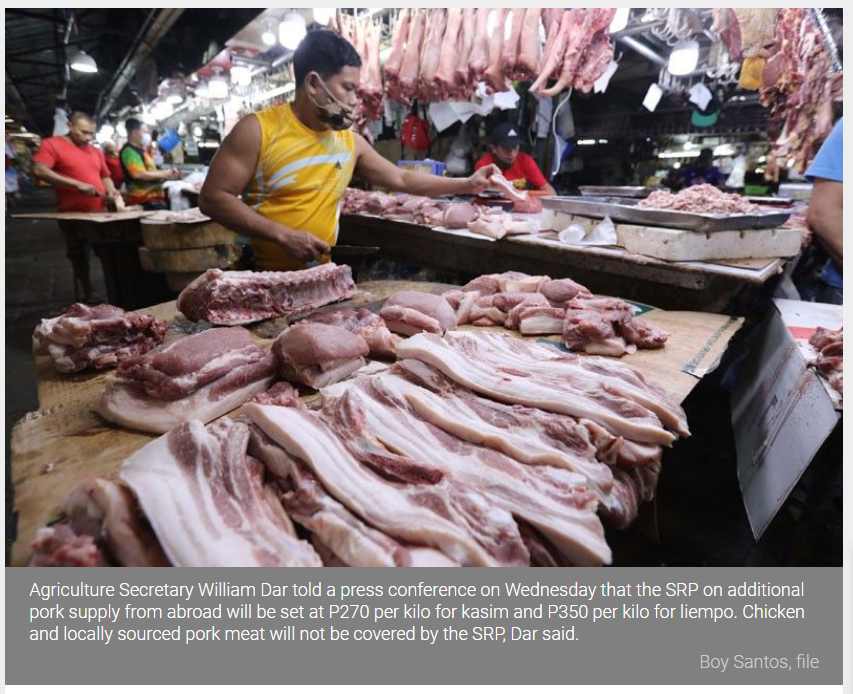Philippines: No extension of 60-day price cap on pork — Agriculture department
MANILA, Philippines — The government will no longer extend current price caps on pork once they expire, and would instead implement a suggested retail price (SRP) on imported pork in a bid to tame inflation.
Agriculture Secretary William Dar told a press conference on Wednesday that the SRP on additional pork supply from abroad will be set at P270 per kilo for kasim and P350 per kilo for liempo. Chicken and locally sourced pork meat will not be covered by the SRP, Dar said.
The SRP would essentially replace the existing 60-day price controls in the National Capital Region that was meant to temper costly pork costs brought by tight supply from pigs killed by the African swine fever. The measure, in effect since February 8, will end on Thursday.
In deciding the SRP, Dar said the Department of Agriculture considered costs of warehousing and transportation, as well as margins of retailers. “The bottomline is supply is still tight,” he said.
The implementation of the SRP is just one of the government’s strategies to rein in an already above-target inflation, which surprisingly eased to 4.5% in March on the back of a broad slowdown in food price growth. But despite the current price caps, pork products driving prices for the past three months picked up pace to 20.9% from 20.7% last month, government data showed.
That said, Dar told reporters that the SRP will work in tandem with other existing measures, which include shipping surplus pork supply from ASF-free provinces to the capital and nearby areas, providing transport assistance and importing more pork at a lower tarriff. “It’s these holistic measures that can bring down inflation,” he said.
In total, the government estimated that the Philippines is short this year of 400,000 metric tons of pork, the country’s main source of protein.
This assessment prompted the local pork shipments while awaiting for President Rodrigo Duterte to sign an executive order (EO) that would permit more pork imports from abroad to augment supply. By law, tariffs may only be tinkered with by the executive department when legislators are on break. Otherwise, any change would have to go through the more tedious enactment of a bill. Congress is in recess from March 27 to May 26.
According to Dar, a proposal to increase the cap on pork imports purchased under lower tariffs is already in Congress and Duterte would only sign an EO should lawmakers refuse to act on the measure. He did not elaborate.
Source: https://www.philstar.com/business/2021/04/07/2089554/no-extension-60-day-price-cap-pork-agriculture-department


 English
English




